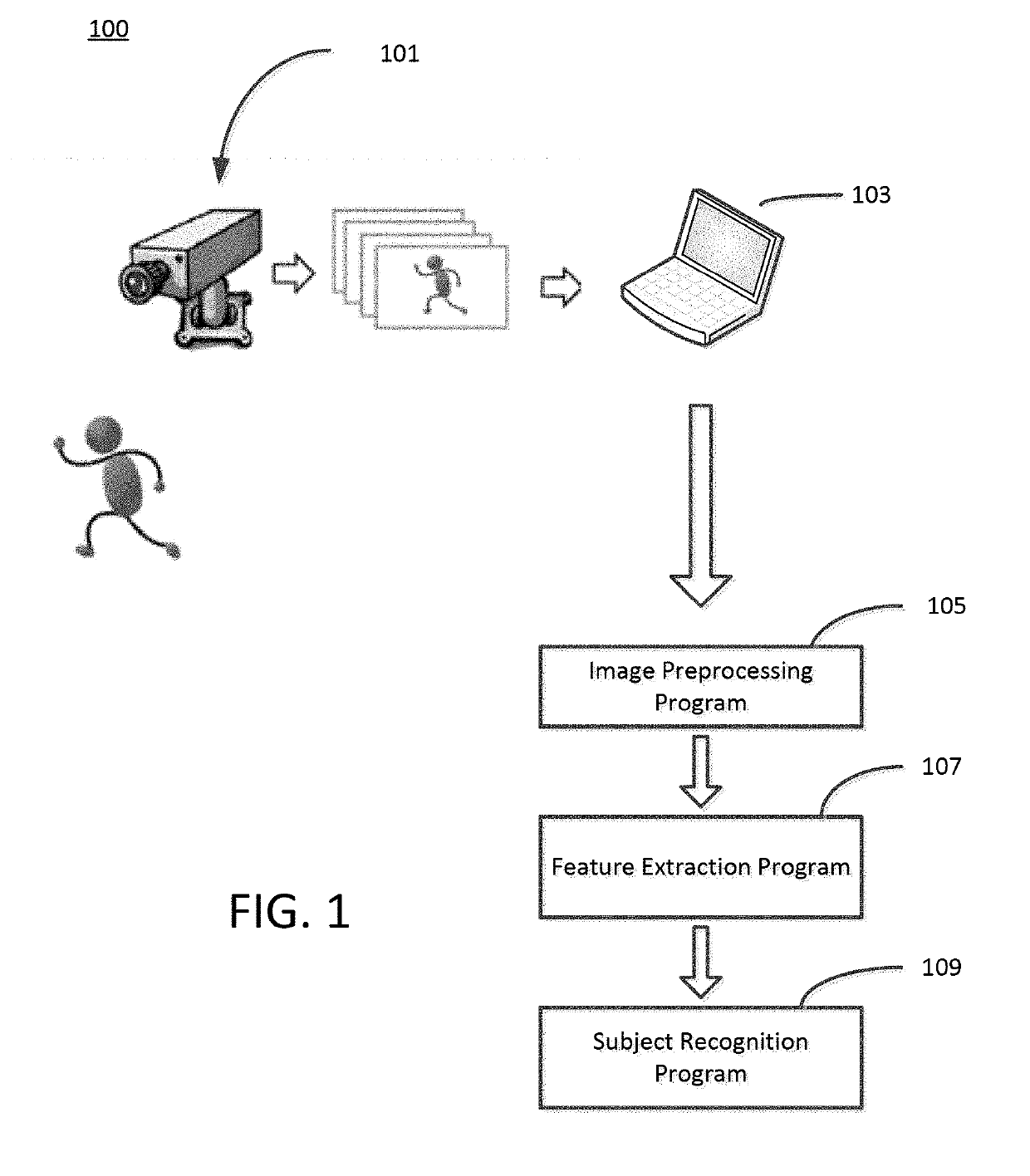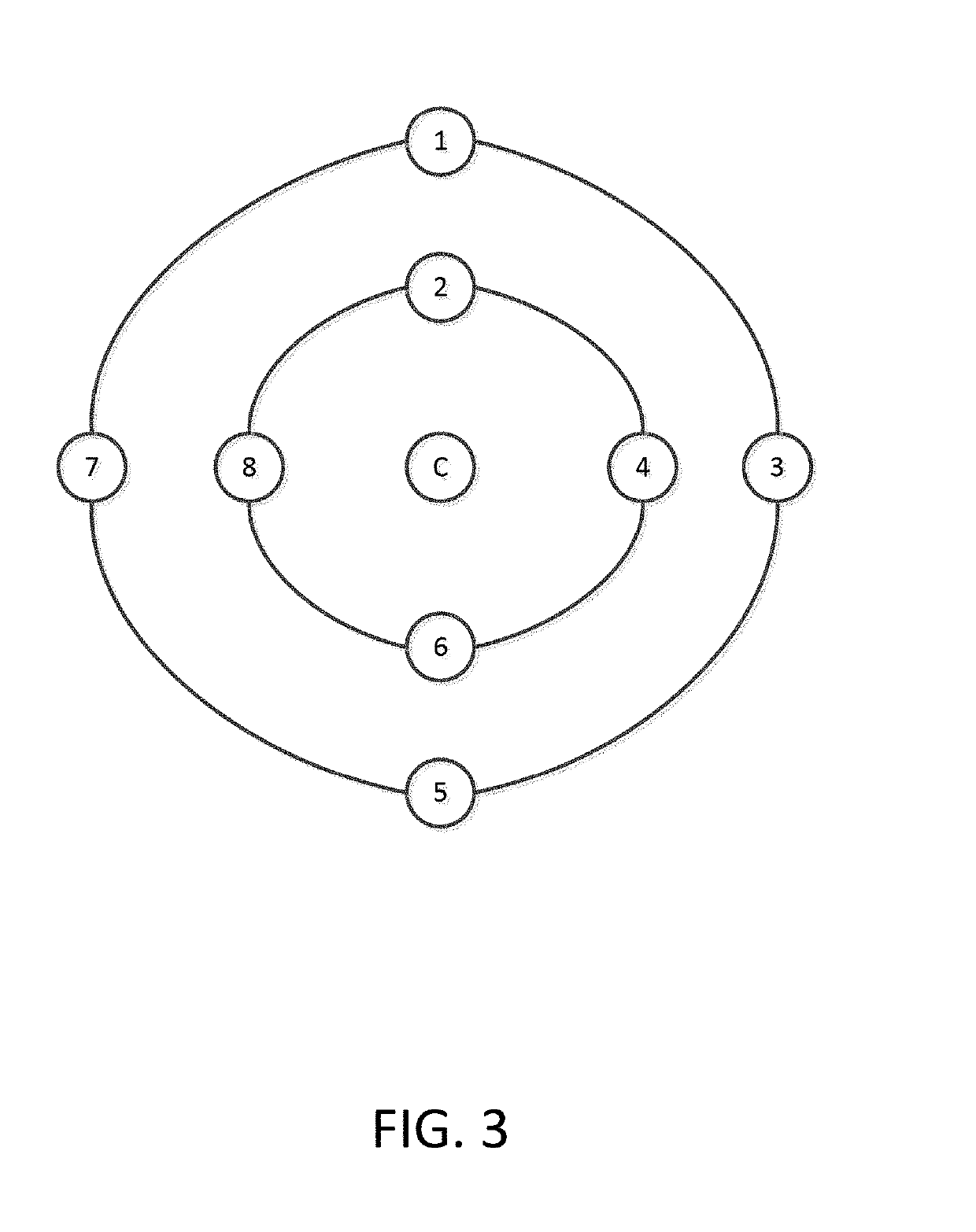Multi-kernel fuzzy local gabor feature extraction method for automatic gait recognition
a feature extraction and fuzzy local technology, applied in the field of automatic subject recognition, can solve the problems of ineffective and reliable gait extraction system, difficult to disguise or conceal gait,
- Summary
- Abstract
- Description
- Claims
- Application Information
AI Technical Summary
Benefits of technology
Problems solved by technology
Method used
Image
Examples
examples
[0051]The CASIA B gait database was used to carry out all experiments. See Yu, S., Tan, D., Tan, T.: A framework for evaluating the effect of view angle, clothing and carrying condition on gait recognition. In: Proc. 18th International Conference on Pattern Recognition (ICPR). Volume 4. (2006) 441-444, incorporated herein by reference in its entirety. It includes 13,640 gait sequences samples among 124 subjects (93 males and 31 females). During the dataset collection, the creators have used 11 cameras to record sequences from 11 different viewing angles. Each subject has 110 video sequences generated from walking 10 times through a straight line of concrete ground as follows: 6 for normal walking, 2 while wearing a coat, and 2 while carrying a bag. Thus, the database contains 110×124=13,640 total sequences for all subjects. Aa setup was used similar to that of the authors of CASIA B database. One gallery set of normal walking of all subjects is used to train the SVM model and the th...
PUM
 Login to View More
Login to View More Abstract
Description
Claims
Application Information
 Login to View More
Login to View More - R&D
- Intellectual Property
- Life Sciences
- Materials
- Tech Scout
- Unparalleled Data Quality
- Higher Quality Content
- 60% Fewer Hallucinations
Browse by: Latest US Patents, China's latest patents, Technical Efficacy Thesaurus, Application Domain, Technology Topic, Popular Technical Reports.
© 2025 PatSnap. All rights reserved.Legal|Privacy policy|Modern Slavery Act Transparency Statement|Sitemap|About US| Contact US: help@patsnap.com



